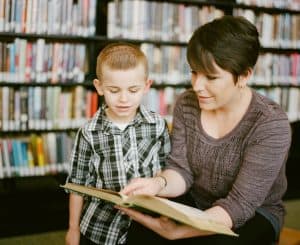Recursos para Docentes
Nos apasiona proporcionar recursos educativos para maestros, administradores, consejeros y cualquier otro profesional que trabaje en escuelas de K-12.

Creadores de Sueños - Cumplidores de sueños fue creado para abordar los apremiantes problemas sociales del abuso de drogas y alcohol, y la promiscuidad. Las historias de tres estudiantes y sus abuelas se cuentan a través de las lecciones, formando un hilo escarlata que mantiene unido el plan de estudios. El maestro también usa una caja secreta, sacando las cartas de las abuelas y objetos inusuales de la caja. Historias convincentes y personajes vívidos hacen que las lecciones sean interesantes y memorables.
Sin importar el país en el que vivas, la cultura popular puede tener un efecto devastador en las familias. A medida que lo que se siente bien reemplaza los valores tradicionales, los padres a menudo se sienten impotentes, descuidando su liderazgo en el hogar. Moldeando el futuro de su hijo está diseñado para que los padres ayuden a restaurar su autoridad en el hogar y les brinde herramientas prácticas para desarrollar sus habilidades de crianza.
Consejos para Maestros -

Balancing the Student’s Best Interests with Parental Requests
A 2022 British Council survey found that 79 percent of parents in Wales said teachers play a vital role in society. That’s got to make teachers feel good.

A Substitute’s Story: When Flu Took Out the Teachers
Entering a classroom unexpectedly can cause anxiety for all involved. Children may respond with confusion, fear, or misbehavior. Use a calm voice, even if you feel nervous and uncertain. Your confidence will assure the students and set the tone for the day.

When I was the New Kid on Staff
Joining a new organization can be exciting, providing a fresh start, and hopefully, new friends. Yet, being a newcomer on an educational team also has its drawbacks.

Five Ways Teachers Can Make the Most of Their Summer
If you’re a teacher who is looking for new ideas for those months when you’re not in the classroom, try these five ideas:

15 Interesting Facts About U.S. Teachers
We can gain a lot of insight when we consider some of the statistics of our teachers here in the United States. Take a look at these facts from 2023 and see if anything surprises you.

Knowing When It’s Time to Retire
Knowing when it is time to retire is not always easy. The following thoughts can help us know when it’s time to retire.

8 Books Promoting Morals and Values for Your Students
Protecting the innocent is a theme woven throughout the book through the characters.

Should I Date My Colleague?
Having feelings for a coworker isn’t a new problem. But deciding whether to act on these feelings can feel scary. While everyone’s situation is a little different, there are two categories that you should think about before jumping in.

6 Ways Your Students Learn When You Read Aloud
Our teacher read “The Phantom Tollbooth” aloud to our class. Along the way, we gladly used our imaginations and entered into the story. We marveled at the endless wordplay.

Tips to Set Up Your Substitute for Success
A sudden illness or family emergency does not have to disrupt your classroom routine. Simple pre-planning can enable a substitute to step in with ease. Here are ten tips to help your substitute succeed in your absence.

Keeping Up with Student Slang
With hundreds of students passing you in the school halls, you hear slang much more than parents or other adults. Rather than ignore or reject these new phrases, it’s vital to (at the very least) understand their definitions.

Gifts Principals Might Give Their Teachers
So, what does a principal or other administrative staff give teachers during the holiday?

